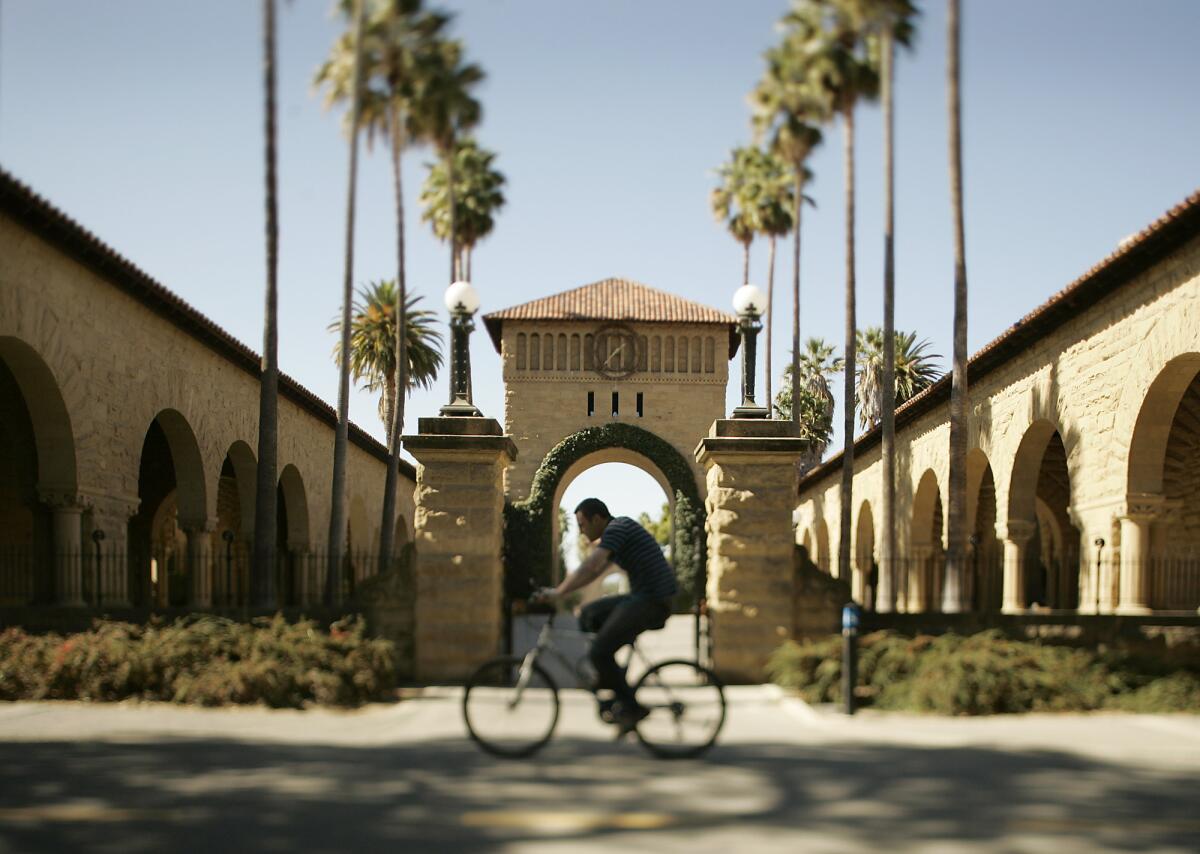Opinion: Donating money to help your child get into college isn’t wrong

The wealthy parents ensnared in the college admissions scandal violated the law in numerous ways. They falsified standardized test scores, fabricated athletic profiles and disguised payments for admissions consulting as tax-deductible charitable contributions.
But the prosecutors’ recent addition of bribery charges in some of the cases promotes the erroneous view that family financial contributions have no place in the admissions process. In donating money with the hope that it will increase a child’s likelihood of admission, parents are doing precisely what schools have led them to believe they should do.
Private universities, even those that practice need-blind admissions, are very aware of which parents have made or are likely to make substantial financial gifts. At schools with sophisticated fundraising operations, the institution may be as knowledgeable about the parents’ financial profile as about the applicant’s academic accomplishments. At most schools, the applications of students whose parents have previously given generously are flagged for special attention.
A family’s ability to make a substantial donation is one of many admissions factors, in addition to grades and test scores, that schools typically consider. One benefit of special treatment for the children of wealthy donors is that large gifts from a small number of families can subsidize the education of other students and potentially increase the number of students from disadvantaged families that the school is able to enroll.
The practical considerations that lead schools to prefer applicants from rich families are real. Universities’ costs have risen dramatically over the past few decades. Colleges compete more vigorously for students, and the quality of facilities can affect enrollment decisions. Schools are expected to provide more services now than in decades past, too, including expensive international programs, service learning opportunities, mental health counselors and advanced technological infrastructure. And faculty salaries have increased in order to keep pace with rising salaries across the economy for highly educated professionals.
The actual cost of education at most schools substantially exceeds the tuition collected. Even students who pay full tuition pay less than the cost of their education and thus are being subsidized. This subsidy is provided in part by government funding at public universities. Private schools, in contrast, have to rely wholly on private philanthropy, which at some schools covers nearly a third of operating expenses. Balancing the budget, especially for schools that value ethnic and economic diversity, means admitting some students partly because they are likely to bring in additional money.
Private fundraising has also become part of the financial model of so-called nonrevenue sports, which have figured prominently in the admissions scandal. While some universities can count on their basketball and football programs to bring in millions of dollars in television and merchandise revenue, few harbor any such aspirations for, say, the field hockey or crew team. That has meant that, while coaches for those sports certainly seek out great players from every kind of economic background, they also look for good players whose families can help fund the teams.
What’s striking in the admissions scandal is not parents’ willingness to pay to get their children admitted but rather universities’ reticence in publicly owning up to the role of money in their admissions practices. Most schools have failed to acknowledge that donations may influence admissions decisions. And they have failed to defend employees who in good faith solicited and accepted money on behalf of the university. This sort of hypocrisy is a disservice to both universities and the wider society, making it harder to think clearly, and critically, about the norms of selective college admissions. The real question here is not whether but how frequently money should influence admissions decisions.
Universities should not be relieved of their obligation to enhance educational opportunity for meritorious students from all segments of society. That’s ultimately the standard by which selective universities should be evaluated: not how many privileged students receive admissions preference, but instead how many students from disadvantaged and racial minority backgrounds they serve.
Ralph Richard Banks is a professor of law at Stanford Law School and author of the book “Is Marriage for White People?: How the African American Marriage Decline Affects Everyone.”
More to Read
A cure for the common opinion
Get thought-provoking perspectives with our weekly newsletter.
You may occasionally receive promotional content from the Los Angeles Times.





